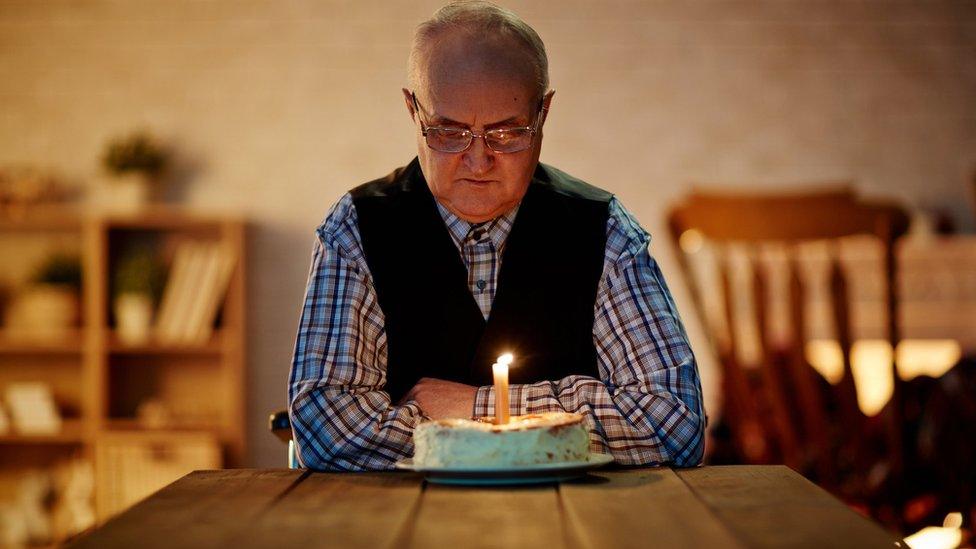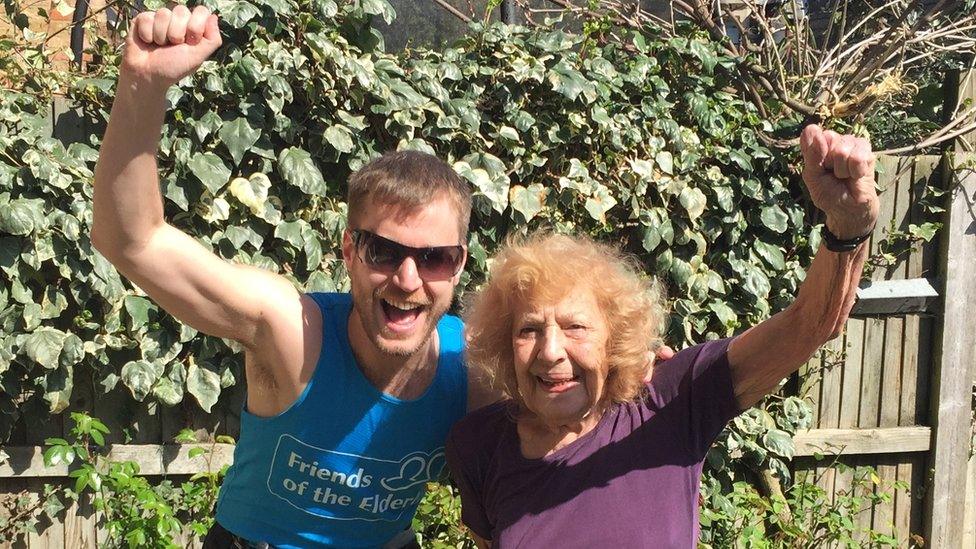Lonely people in parts of Wales to get support
- Published

Four areas in Wales have been identified as some of those where people suffering from loneliness need more support.
Carmathenshire, Conwy, Newport and Torfaen were highlighted in the study by the Co-op and British Red Cross.
The partnership has responded with a new service for those areas - Community Connectors - funded for two years.
The study, which included a survey of 2,500 people revealed 18%, of the UK population was always or often lonely.
Community connectors are specialists in psychosocial support, safeguarding and supporting people experiencing loneliness and social isolation.
They and their teams of volunteers will provide up to 12 weeks of intensive, person-centred care, identifying relevant activities, interest groups and services to help people gain confidence.
Money for the new service has been raised by Co-op stores in the 39 UK areas affected - more than £50,000 has been collected in Wales.

The Red Cross already provides care and support services across Wales.
Annie Fazackarley, the charity's independent living operations manager for Swansea, Morgannwg, Mid and West Wales, said she saw community connectors being "part of an integrated approach".
Wayne Brown, independent living service manager for north Wales, said: "Conwy was chosen for this project as historical evidence shows us that the county has a high number of isolated older people.
"It is a traditional area of inward migration, a county to which people retire to enjoy a place by the sea.
"People retire here but, over time, they can lose a partner or succumb to ill-health and very quickly become lonely and isolated."
Nicola Wannell, independent living service manager in Newport, said the city had both a high elderly population and a high proportion of people living in single-person households.
"Torfaen is a more rural area and people in rural areas can feel more isolated," she added

The research identified key triggers that can create situations where loneliness becomes the norm:
Becoming a new mum at a young age
Facing empty nest syndrome or retirement
Experiencing long-term health issues or mobility limitations
Dealing with bereavement
Going through a family breakdown, such as divorce or separation
Richard Pennycook, chief executive of the Co-op, said: "This report clearly identifies how ordinary events in life have the potential to disrupt our social connections and can lead to individuals becoming lonely.
"This rich insight clearly shows that there is a role for businesses, individuals and community groups to play in preventing and responding to loneliness."
The research involved interviewing 45 expert witnesses, hearing direct testimony from more than 100 individuals who are experiencing loneliness, and surveying 2,500 members of the public.
- Published15 November 2016

- Published28 August 2016
